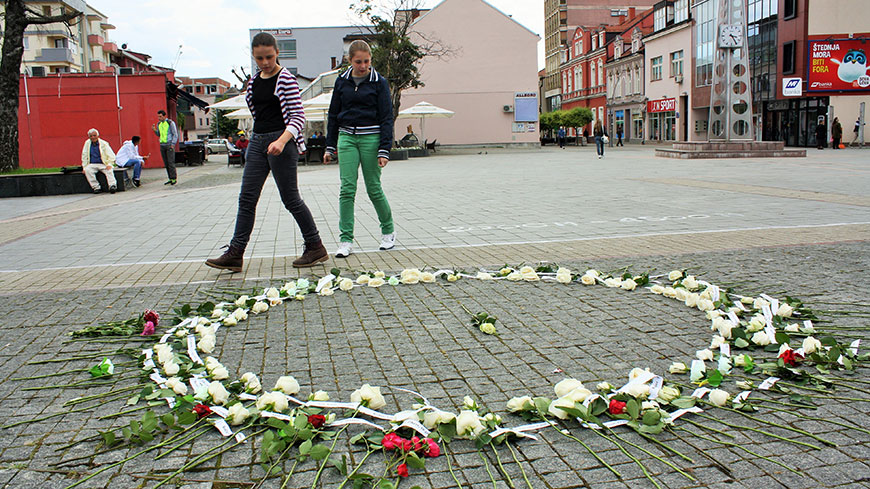«Неспособность в полной мере справиться со всеми последствиями злодеяний, совершенных в военное временя, а также с коренными причинами конфликтов 1990-х годов продолжает иметь разрушительные последствия для прав человека, верховенства закона и социальной сплоченности в регионе», — заявила сегодня Дуня Миятович, Комиссар Совета Европы по правам человека, публикуя доклад о состоянии усилий по обеспечению правосудия переходного периода в странах бывшей Югославии.
Далее на английском языке.
“Time is pressing to achieve effective justice, reparations and truth for the victims”, said the Commissioner. “The notable backsliding of the processes to deal with the past coincides with negative human rights trends on hate speech, freedom of assembly, media freedom and civic space, and ultimately threatens hard-won peace.”
In her report, the Commissioner examines the unfinished processes and obligations toward dealing with the past. “War crimes prosecutions, the search for missing persons and the provision of reparations for victims have recently slowed down or stagnated mostly due to a lack of political will. Other crucial measures, such as the establishment of truth and reconciliation commissions, vetting of public officials, dealing with the root causes of the violent past and inclusive memorialisation have not taken place.” She also highlights the negative trends that have undermined attempts to deal with the past and gives recommendations on how to provide a new impetus to transitional justice processes to create a future in which conflict is less likely.
The Commissioner stresses that the ethnonationalist discourse which has regained strength in the region, along with the rise in denial of war crimes and glorification of war criminals seriously impede efforts towards reconciliation and threaten peace. “Divisive and hateful narratives and actions have become a generalised political strategy, including around elections and dangerously undermine efforts to prevent the recurrence of violence”, she said. She also emphasises the role of media, religious leaders and public figures in spreading these harmful narratives, as well as their responsibility to reverse these negative trends.
Underscoring the pivotal importance of regional cooperation in this context, the Commissioner urges states in the region to revive efforts on dealing with the past towards justice and reconciliation through a victim-centred approach, and zero tolerance for the denial of genocide and the incitement of hatred against other ethnic groups. The intergenerational dimension of dealing with the past, including youth engagement, integrated education, history teaching and human rights based memorialisation, requires urgent attention to break the ongoing transmission of trauma and hatred from one generation to the next. It is crucially important to strengthen political and financial support for a strong and resilient civil society working on transitional justice. “Civil society is currently the best hope for a better future based on human rights and the rule of law”, she said.
The Commissioner’s Issue Paper also highlights the considerable legacy of transitional justice processes in the region. The atrocities committed during the wars in the 1990s were met with a resolute shift towards no impunity. The high rate of resolution of cases of persons who went missing during the wars – over 70%, serves as a blueprint for dealing with missing persons. The engagement and innovative approaches led by civil society and human rights defenders are commendable and can serve as an inspiration in other post-conflict situations. Post-war processes also contributed strongly towards breaking the silence about conflict related sexual violence and the need for gender-sensitive approaches when dealing with the past. The Commissioner also stresses that addressing a legacy of abuse is a long-term process which requires enduring commitment and engagement by national authorities, the international community, and society as a whole.
- Read the Issue Paper Dealing with the Past for a Better Future: Achieving justice, peace and social cohesion in the region of the former Yugoslavia
- Read the ‘Report in a nutshell’ (also available in Albanian, Bosnian, Croatian, French, Macedonian and Serbian)
- Read the detailed summary (also available in Albanian, Bosnian, Croatian, French, Macedonian and Serbian)



